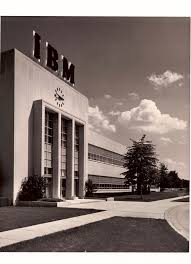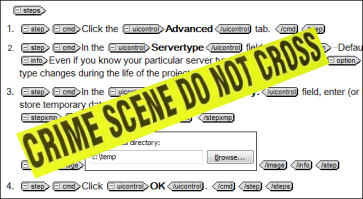
The IBM Kingston lab
40 years ago — on May 29, 1979 — I walked into the IBM programming lab in Kingston, New York, for my first day of work as a technical writer.
I’ve seen a lot in those 40 years. Some things about the profession have changed a lot; some haven’t changed at all.
Audience
The audience has always been the focal point for everything we do. 40 years ago, we paid lip service to that fact. Today we understood that we’re here to serve our readers, but we often struggle with how to do that. Soon it’ll be non-negotiable: If we don’t satisfy our readers, they’ll go elsewhere to get information, and they might even choose our competitors’ products over ours.
Tools
Since 1979, tech writing tools have evolved from literally nothing to the jangle of options we have today. (And the interval, from the first tool to the first job posting requiring that tool, was about 5 minutes.)
But eventually the basic principles behind text editors and graphics programs became well enough established that a writer could move easily from tool to tool. Continue reading



 She’d come prepared to make her case. As a cop, she said, I write reports all the time. The reports have to be factual and clear. I reckon I’m already doing technical writing.
She’d come prepared to make her case. As a cop, she said, I write reports all the time. The reports have to be factual and clear. I reckon I’m already doing technical writing. I’ve worked in this profession a long time and met colleagues with all kinds of backgrounds. My encounter with the police officer reminded me that, even though
I’ve worked in this profession a long time and met colleagues with all kinds of backgrounds. My encounter with the police officer reminded me that, even though 